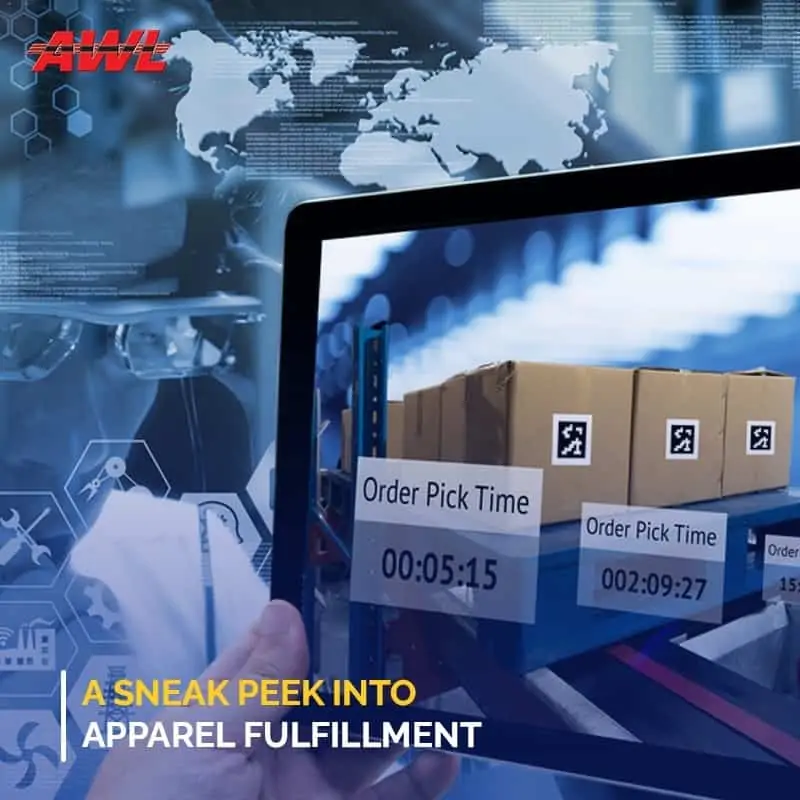The process of completing clothes orders is known as apparel fulfillment. The process begins with the creation of the product by the designer or garment manufacturer. The delivery of clothing purchased by clients is the result of apparel fulfillment.
When a consumer placed an order and pays for it, the business is responsible for completing the order. This is where logistics play a role. Fulfillment is the process of transferring items from a supplier to a warehouse and then to a customer’s address.
Multiple stakeholders, such as designers, merchants, manufacturers, and distributors, must work together to fulfil an order. The product that will be sold to the buyer is usually provided by a vendor.
The designer who creates the garment is the first step in the apparel fulfilment process. The garment is then made in the next step, which is production. It then proceeds on to inventory, where the clothing are given a stock-keeping unit (SKU).
Following this, distribution occurs, in which stores obtain the things they require for their apparel inventory. Last but not least, there’s retail store operations and customer service.
What Makes Apparel Fulfillment Different?
Let’s first understand the benefits of wearing clothes on demand; it’s more cost effective for retailers because they don’t need to stock as many styles. It’s also easier for customers to find specific items that might be out of stock in brick-and-mortar stores. Consumers can find their size more quickly because they don’t have to hunt for it in a store.
Apparel fulfillment is very different from other e-commerce fulfillment services. It’s not just about shipping items to customers. The process of apparel fulfillment involves many steps that involve all aspects of product manufacturing, including design, production, pre-production, and post-production.
Apparel or how it is commonly called fashion fulfilment is a complicated process that requires careful attention and an understanding of how to provide the best possible customer experience. With all the moving parts and variables in apparel fulfillment, you want to make sure your company is doing everything correctly and getting the maximum benefit from every order.
Apparel Return Management
Apparel Return Management deals with the return of merchandise to retailers. To keep a merchandise inventory, it is necessary to provide a store or customer with a return authorization. Many companies use this department to make sure that their return policies are followed. This can range from simple information to more complex procedures.
Return management is a critical but often overlooked function in the retail industry. A large percentage of retailers’ gross profit is lost due to poor return management practices and the related costs involved.
Short Product Life Cycle
Product lifecycle is a period of time, starting from the moment a product is conceived and ending with its withdrawal from the market. Companies are now adapting to the ever-changing nature of consumer demand. Products are now regarded as disposable, rather than lifelong investments like they were before.
People are very fickle nowadays. The demand for new products is always increasing, and people get tired of their existing products quickly. If the product life cycle is too long, your business will lose money.
High SKU Counts
The SKU number of a product is the stock keeping unit (SKU) for that particular item. A SKU is a unique identifier used for products in retail. It’s similar to an ISBN and UPC, and allows for retailers to identify and track specific products from manufacturers. The amount of SKUs on an online store does not correlate with its success.
If you sell products online, chances are your customers want to buy more than one product. SKUs (stock keeping units) help you do that by allowing you to group similar items together under a single identifier. This is an extremely useful feature for companies who offer variety in their products.
Why Choose AWL India for Apparel Fulfillment?
Many small and medium-sized clothing companies have difficulties with the logistics of fulfilling orders. It takes a lot of time and effort to store, pack, and ship a single order. The process is also very costly for a small company since they need to invest in wholesale prices, storage space, packing supplies, postage costs and more.
The apparel industry is a very competitive global one. And, if you have not been able to build a brand that’s known for its quality and offer superior customer service as well as keeping up with trends, then it can be quite difficult to compete against the big brands out there. This is where AWL India comes in.
AWL India offers various benefits to businesses such as cost saving. They work alongside clients as well as other industry leaders to find the right solutions to their requirements and deliver them with perfection.

